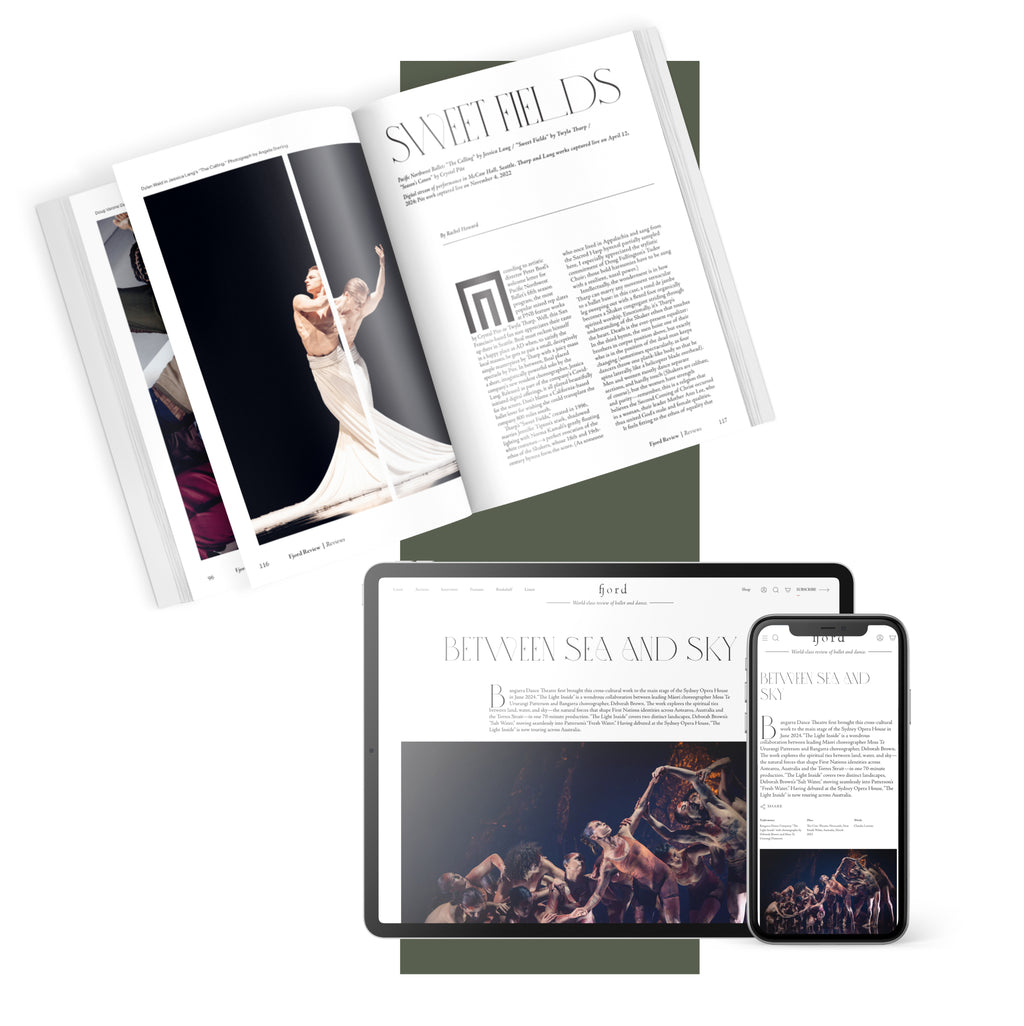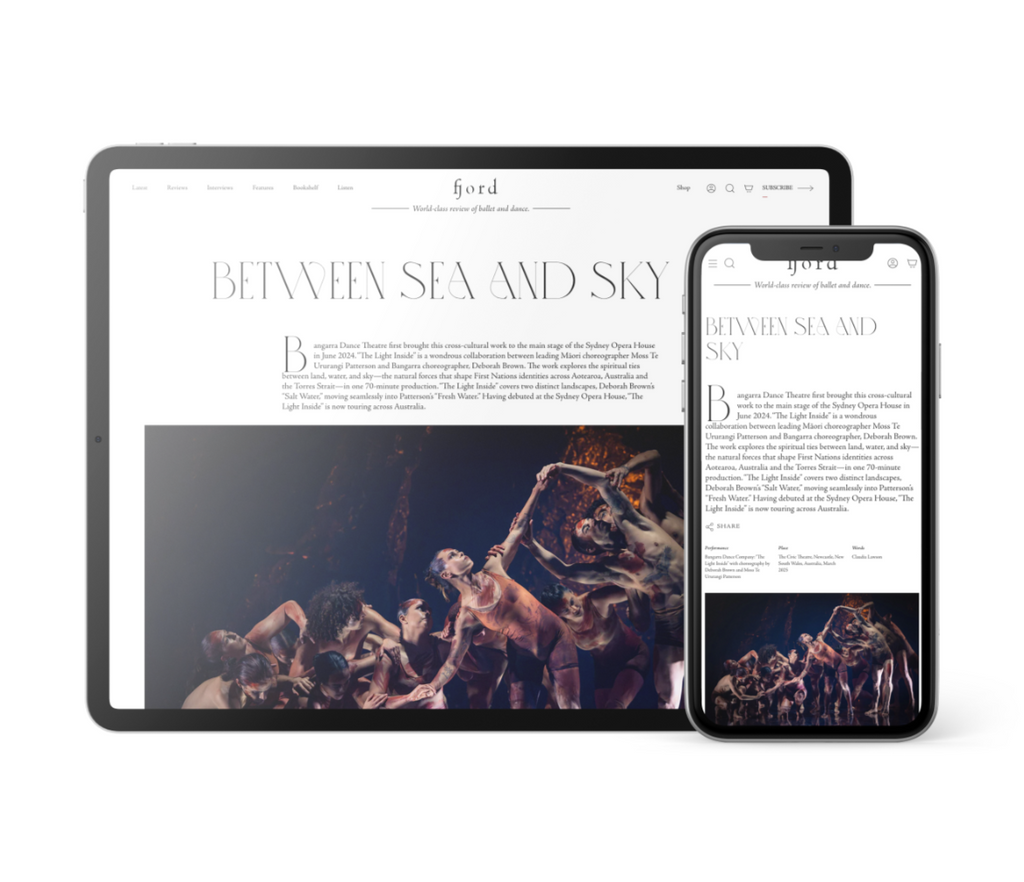Lovette’s new “Chaconne in Winter” is a lite chamber music offering. Dancers Madelyn Ho and John Harnage regard each other respectfully from opposites sides of the stage in softly glittering unitards by Mark Eric. (The choreographer says she was inspired by the idea of falling show.) Unfortunately the bold onstage kinetic performance of string trio, Time for Three, competes with the delicate and restrained demeanor of the dancers.
“Vespers” by Ulysses Dove centers on a community of six women dressed in black, led by the excellent Jada Pearman. Though made in 1986, it’s hard not to read this dramatic work as a timely response to the attack on women’s reproductive rights and their role in the world. Dove’s strong Horton technique is apparent, particularly in a striking move where the women lie on their sides at the base of spare wooden chairs, their legs raised off the ground in parallel. They look as if they’ve frozen in place after falling off the chairs.
A live Orchestra of St. Lukes under David LeMarche lent an extra gravitas to the second evening I attended: A romantic “Arden Court” puts the Taylor athletic male physique on wonderful display, exemplified by the strapping Kenny Corrigan, Lee Duvenick, and Devon Louis in handstands, lunges, cartwheels, and rolls. When three women enter—Ho, Borres Casey, and Ferretti— couples form for a section of unison partnering. But it’s the men alone who draw my eye most—their solid lateral tilts, the loping leaps in a line, each delivering an individual flourish to set himself apart.











comments